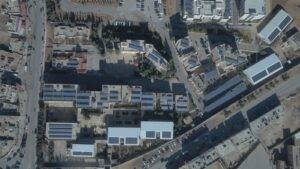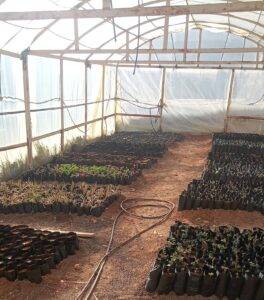Tafila Technical University is a pioneer in environmental sustainability and reliance on clean and renewable energy sources. It has taken several environmental measures to reduce harmful emissions and rely on alternative energy sources. One of the crucial challenges the university faces is the emissions from vehicle traffic and concealed gases used for cooling buildings.
The emissions resulting from vehicle traffic and concealed gases used for cooling buildings amount to 150,000 cubic meters, equivalent to around 390 tons of carbon dioxide. To address this issue, the university has implemented a series of important measures. One of the key actions is the establishment of a comprehensive plan to promote the use of alternative and sustainable energy sources. The university has raised awareness among its community members about minimizing energy consumption to curb unnecessary waste.
The university has embraced solar energy to meet its electricity demands, installing solar energy systems on building rooftops and other open areas. Thanks to this reliance on solar energy, the electricity consumption for the university buildings is regulated and within a natural limit. By depending on these renewable energy sources, the university has reduced carbon emissions resulting from conventional energy usage.

The university’s activities are concentrated during the daytime, constituting 98% of its daily operations, while reduced activity characterizes the evening period. Because of this pattern, electricity consumption is lower during the evening hours. As a result, the university can rely on the solar energy stored during the day to meet its energy needs during the evening.
The local community widely appreciates Tafila Technical University for its persistent efforts in environmental sustainability and its adoption of solar energy. It has become a role model for other universities in the Kingdom by embracing renewable energy and achieving environmental sustainability. These endeavors further enhance the university’s position as an educational institution that cares about the planet’s future and works to preserve the environment for future generations.

To protect the university’s environment and ecosystem, about 90 dunums of the campus are dedicated to agriculture, while 10 dunums remain undeveloped. Irrigation practices in the agricultural section comprise 60% drip irrigation and 40% surface irrigation. Around 5,000 seedlings, including forest, ornamental, and fruit trees like olives and nightshade, have been planted within the university grounds. Moreover, roughly 8,000 seedlings of various species are annually cultivated in greenhouses, with the university benefiting from rainfall up to 100 meters through a reservoir near the sports complex, employing water harvesting techniques to optimize rainwater collection. The university’s mixed soil type enables irrigation at a rate of 20 to 30 meters per day during the summer term, while 50 meters of rainfall prove sufficient in winter.
Through the Agriculture Department, the Services Department offers community services by organizing Arbor Day, revitalizing selected gardens within the university and mosques, tending to tree pruning and plant maintenance, as well as accommodating requests from government entities upon official inquiry. Additionally, the university is planning a comprehensive strategy to harness wind energy in the foreseeable future, considering wind speeds in Tafilah province range from 10 to 48 kilometers per hour.

